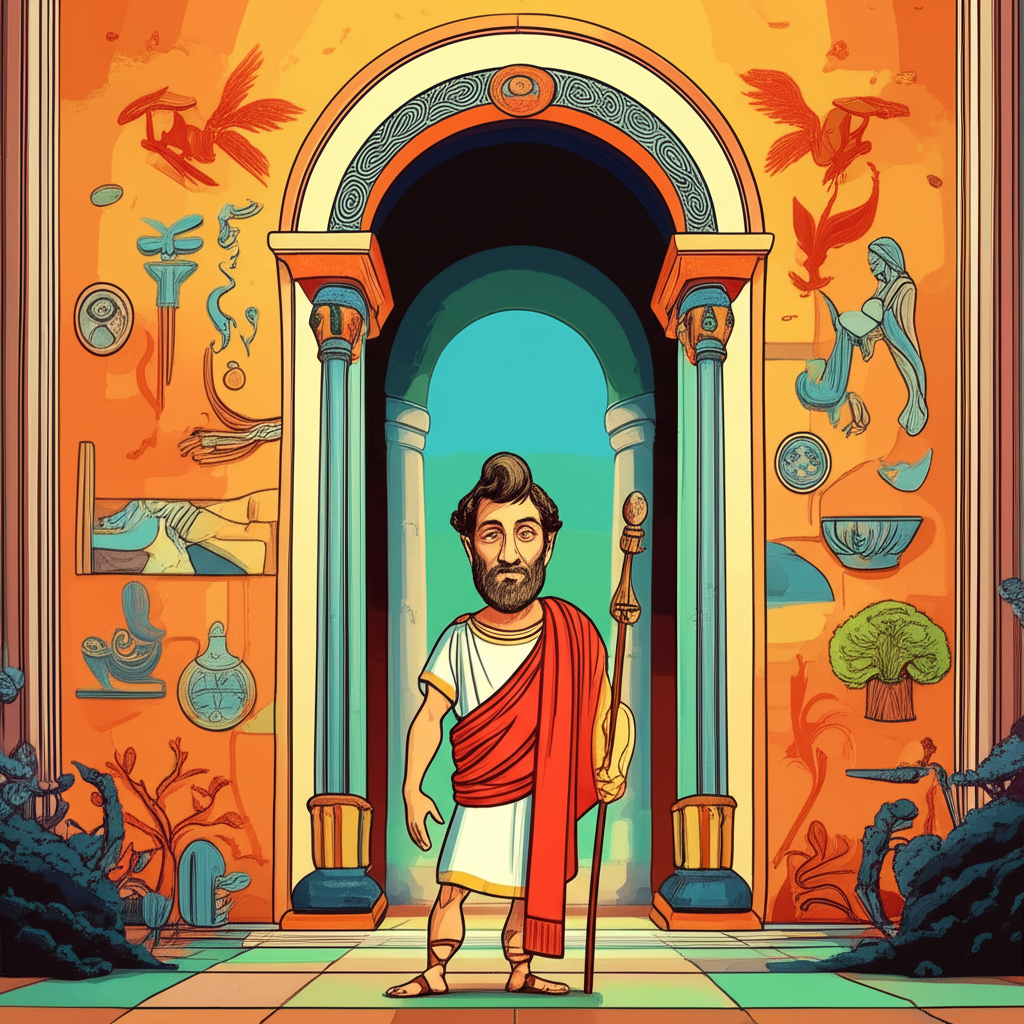
From the sun-drenched shores of the Aegean, where the olive groves shimmered and the marble temples gleamed, comes a tapestry of tales woven by the ancient Greeks. These stories, rich with gods and heroes, monsters and mortals, were not factual accounts but imaginative narratives, passed down through generations to explain the world, entertain, and explore the complexities of human nature and the perceived forces that governed their lives. Among these enduring legends is the saga of the Trojan War, a monumental conflict that, in the eyes of the ancient Greeks, was deeply intertwined with the whims and judgments of the divine pantheon, particularly the formidable Queen of the Gods, Hera.
The cultural landscape from which these myths emerged was one of deep reverence for the natural world and a profound belief in supernatural forces influencing every aspect of existence. Ancient Greek society, particularly during the Archaic and Classical periods (roughly 8th to 4th centuries BCE), was agrarian and seafaring. Their world was one of stark contrasts: the fertile valleys and the unforgiving seas, the blinding sun and the deep shadows of the underworld, the triumphs of man and the ever-present threat of divine displeasure. The gods, as depicted in their stories, were not distant, ethereal beings but powerful, anthropomorphic figures who lived on Mount Olympus, engaging in rivalries, passions, and interventions that directly impacted mortal affairs. The cosmos was a stage for their dramas, and humanity, though capable of great feats, was often caught in the crossfire of their eternal squabbles.
Hera, the central figure in this particular narrative thread, was the Queen of the Gods, wife and sister to Zeus, the king of Olympus. In the ancient Greek imagination, she was a figure of immense power and regal bearing, often depicted as a majestic woman adorned with a diadem and a scepter. Her symbolic attributes were multifaceted. She was the goddess of marriage, childbirth, and family, embodying the sanctity and societal importance of these institutions. However, her most prominent and often fearsome attribute was her fierce jealousy and vengeful nature, particularly directed towards any mortal or immortal who drew Zeus’s affection. This jealousy, while perhaps stemming from a perceived betrayal of her marital vows, also served as a symbol of the powerful, often destructive emotions that could consume even the most exalted figures. She represented the formidable, unyielding aspects of power and the potential for retribution when boundaries were crossed, real or perceived.
The Trojan War, a legendary conflict chronicled in epics like Homer’s Iliad, was not merely a human endeavor; in the ancient Greek worldview, it was fueled by divine machinations. The spark that ignited this cataclysmic war, according to these myths, was not a mere territorial dispute but a celestial slight, a judgment that resonated with Hera’s wounded pride. It all began with a wedding – that of Peleus and the sea nymph Thetis. All the gods were invited, except for Eris, the goddess of discord. Unsurprisingly, Eris, ever the instigator, arrived uninvited and tossed a golden apple inscribed with "For the Fairest" amongst the assembled goddesses.
This seemingly small act plunged the divine realm into a heated dispute. Hera, Athena (goddess of wisdom and warfare), and Aphrodite (goddess of love and beauty) all laid claim to the apple. Zeus, wisely wishing to avoid choosing between his wife and his daughters, delegated the task to a mortal prince, Paris, who was living as a shepherd on Mount Ida, unaware of his royal lineage. The judgment of Paris, as it became known, was not a simple aesthetic choice. Each goddess offered Paris a bribe: Hera promised him dominion over all of Asia, Athena offered him wisdom and victory in battle, and Aphrodite, the most tempting prize, offered him the love of the most beautiful woman in the world.
Paris, swayed by Aphrodite’s allure, awarded the apple to her. This decision, a seemingly insignificant act of a mortal prince, set in motion a chain of events that would engulf Troy in flames. Hera, deeply insulted and enraged by Paris’s choice, felt a burning injustice. The apple, in this context, symbolized not just beauty but also power, influence, and divine favor. By not being deemed "the fairest" in this celestial contest, Hera, the queen of the gods, felt her authority and her rightful place diminished.
Her subsequent animosity towards Paris and the Trojans was not a fleeting anger but a deep-seated, enduring hatred. She became a relentless adversary, actively working against Troy throughout the entire war. She would appear on the battlefield, disguised as mortal soldiers, rallying the Achaeans (Greeks) and sowing confusion and fear amongst the Trojans. She aided Odysseus in his clever stratagems, whispered words of encouragement to the bravest Achaean warriors, and actively sought to undermine any Trojan advantage. Her presence was a constant, palpable force, a divine embodiment of strategic brilliance and unwavering hostility. The epic narratives describe her watching the battles with keen interest, her emotions mirroring the ebb and flow of the conflict, her divine will a palpable pressure on the mortal combatants. She represented the enduring consequences of a perceived slight, the long reach of divine retribution, and the potent force of a queen’s wounded pride.
To the ancient Greeks, the story of Hera and her role in the Trojan War likely represented several potent ideas. Hera’s immense power and her wrath served as a stark reminder of the unpredictable nature of the divine and the potential for catastrophe stemming from seemingly minor events. Her jealousy, while often portrayed negatively, could also be seen as a symbol of the importance of order and fidelity within societal structures, even at the highest divine levels. The story also underscored the idea that even the most powerful mortal endeavors could be significantly influenced, if not entirely dictated, by the will of the gods. It was a way of understanding and contextualizing the often-brutal realities of warfare and the inherent vulnerability of human ambition in the face of forces beyond their control. Hera’s role could be interpreted as a personification of fate, or perhaps the inexorable consequences of actions that upset a perceived cosmic balance.
In the modern world, Hera and her entanglement with the Trojan War continue to resonate, though often through a lens of literary analysis and cultural exploration rather than religious devotion. Her character has been reinterpreted in countless novels, plays, and films, often as a complex antagonist, a victim of circumstance, or a symbol of female power and rage. She appears in contemporary fantasy literature, offering a complex portrayal of divine authority and the struggles of maintaining power in a patriarchal pantheon. In academic circles, scholars analyze her role in understanding ancient Greek societal values, gender roles, and the complex relationship between the human and the divine. Her story, stripped of its mythological context, becomes a study in human emotions – jealousy, pride, vengeance – writ large upon a celestial canvas.
It is crucial to reiterate that these are traditional stories, born from the rich cultural heritage of ancient Greece. They offer a fascinating glimpse into the imaginative world of a bygone era and the ways in which people sought to understand their existence. As Muslims, we recognize that only Allah (God) is the true Creator and Sustainer of all that exists. These ancient narratives, while compelling works of imagination and cultural artifacts, do not hold divine truth. They serve as a testament to the enduring power of human storytelling, the capacity for creative expression, and the rich tapestry of cultural heritage that shapes our understanding of the world and the diverse ways in which humanity has sought to make sense of its place within it. The echoes of Hera’s fury, like the sands of Troy, remain a part of our collective cultural memory, a reminder of the stories that continue to captivate and inform us.




